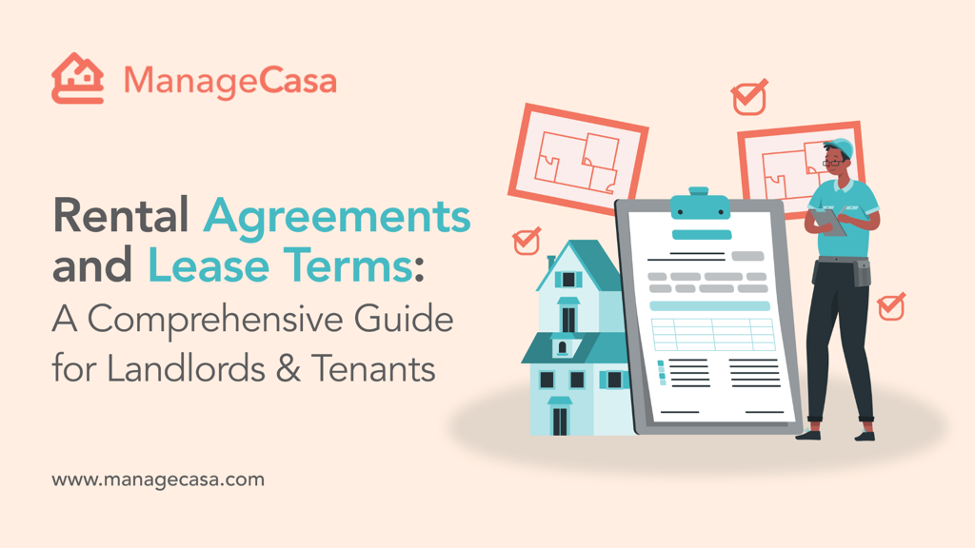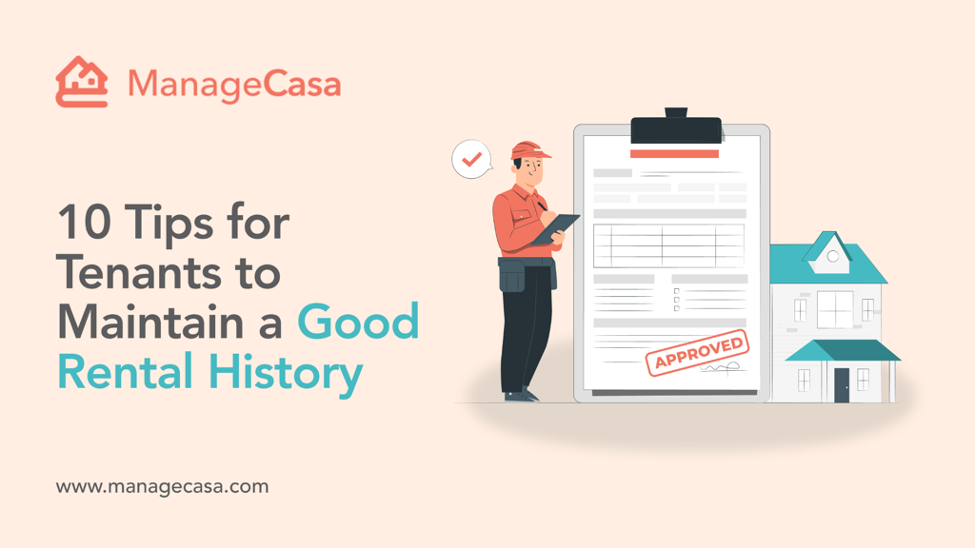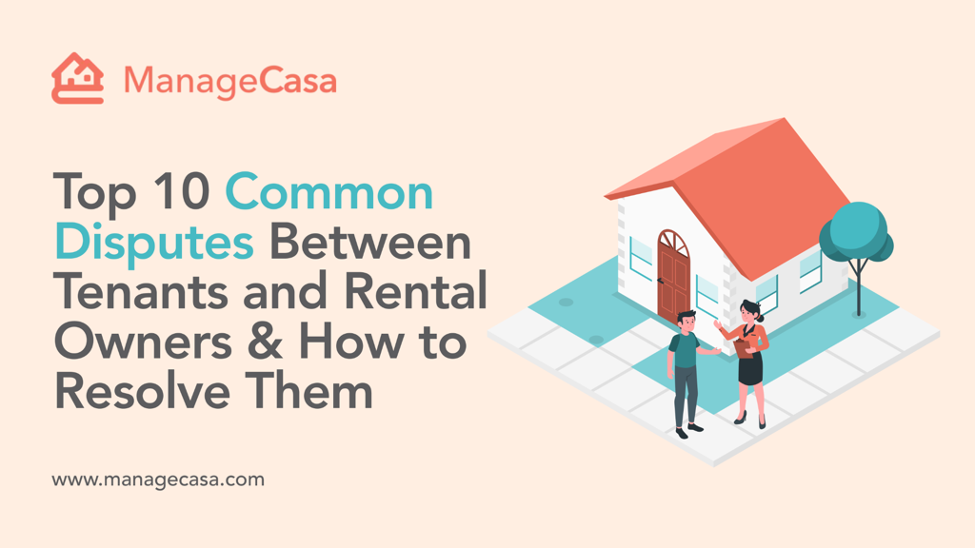7 Essential Tenant Rights & Rental Owner Obligations Every Renter Should Know
Renting has become a reality for many millennials and Gen Zs, and the data backs it up. However, we’re not here to scare you with grim statistics. Instead, we educate you about smart renting options and insights to ensure you find a great place to live while saving up for your dream home. Millennials in cities like Santa Barbara spend an average of $184,000 on rent by age 30, about 26% of their income. Gen Z renters are projected to spend $209,000, nearly 29%, by the same age. These numbers highlight how renting is a temporary phase and a key part of life for many young adults today.
For renters, this might mean understanding tenant rights and finding a great place to live while saving for future homeownership. For landlords, it means finding high-quality tenants, reducing vacancies, and streamlining operations to ensure their rental business thrives.
That’s where ManageCasa comes in—bridging the gap between landlords and tenants with innovative, mobile-friendly solutions. With our native mobile app for iPhone and Android, you can stay connected on the go. Communicate effortlessly with your team, owners, and tenants, and receive push notifications for messages, maintenance requests, and payments—all from the convenience of your mobile device.
We’re here to simplify renting and property management for everyone. Ready to make renting more innovative and more efficient? Let’s explore tenant rights and rental owner obligations to ensure a smooth and stress-free experience!
Top 7 Tenant Rights and Their Significance*
1. Right to a Habitable Living Environment
Tenants are entitled to live in safe, clean , and fit-for-human habitation properties. This includes access to essential services such as adequate heating, hot water, functional plumbing, and a pest-free environment. Landlords are legally obligated to maintain these basic health and safety standards and adhere to rental property maintenance standards.
Rental Owner Obligations
- Perform regular maintenance and timely repairs to address any health and safety concerns, ensuring compliance with tenant rights for property repairs.
- Ensure compliance with local building codes and housing laws to uphold habitability.
Why this matters: Substandard living conditions can negatively impact tenants’ health and well-being. By adhering to these standards, landlords fulfill their legal duties and contribute to their tenants' better quality of life.
2. Protection from Discrimination
Under the Fair Housing Act, tenants are protected from discrimination based on race, color, national origin, religion, sex (including gender identity and sexual orientation), familial status, or disability. Some states extend these protections further.
Rental Owner Obligations
- Provide unbiased treatment during tenant screening, lease agreements, and maintenance requests.
- Avoid discriminatory advertising or lease terms that exclude or disadvantage protected groups.
Why this matters: Non-discriminatory practices ensure fairness and equal access to housing opportunities, fostering inclusivity and diversity in rental communities.
3. Right to Privacy
Tenants have the right to privacy in their rental units. This right implies landlords must provide reasonable prior notice before entering the premises, except in emergencies. The notice period and acceptable reasons for entry vary by state.
Rental Owner Obligations
- Typically, tenants are notified in writing before management enters the rental unit for inspections, repairs, or showings.
- Limit entry to reasonable hours to respect tenants’ personal space and schedules.
Why this matters: Respecting tenants’ privacy builds trust and ensures landlords do not infringe upon their tenants’ personal lives, creating a more positive rental experience. This right extends even during a property sale to ensure tenants are notified and their privacy is respected.
4. Right to Due Process Before Eviction
Tenants cannot be evicted arbitrarily. Proper legal procedures must be followed, including providing adequate notice and allowing tenants to contest the eviction in court. These rights are protected under the Fourteenth Amendment, encompassing eviction procedures and tenant protections.
Rental Owner Obligations
- Initiate an unlawful detainer by, providing 14 or 30 days’ notice as required at the local or state level. Clearly specify valid reasons for eviction, such as nonpayment of rent, lease violations, or other lawful grounds, to ensure compliance and avoid disputes.
- Avoid illegal eviction methods like changing locks or cutting off utilities.
Why this matters: Due process safeguards tenants from unfair treatment and ensures they have a chance to address disputes, maintaining a balanced and just rental system.
5. Protection Against Retaliation
Tenants are protected from landlord retaliation when they exercise their legal rights, such as reporting unsafe conditions or joining tenant advocacy groups.
Rental Owner Obligations
- Avoid increasing rent, decreasing services, or initiating eviction solely because a tenant has lodged a complaint or joined a tenant advocacy group.
- Maintain open communication to address tenant concerns without punitive measures.
Why this matters: Protection against retaliation encourages tenants to report issues and advocate for their rights without fear of negative consequences. Landlords must also adhere to rent increase notice requirements, ensuring tenants are informed of changes.
6. Right to Organize
Tenants have the right to form or join tenant organizations to collectively address issues related to housing conditions and rights. Legislation like the Tenants’ Right to Organize Act supports this right.
Rental Owner Obligations
- Respect tenants’ rights to organize and participate in tenant associations.
- Refrain from interfering with or retaliating against tenants involved in organizing activities.
Why this matters: Collective organization empowers tenants to advocate for improvements and hold landlords accountable, ultimately leading to better living conditions.
7. Security Deposit Regulations
Landlords may use security deposits to cover damages, unpaid rent, or outstanding utility bills. However, they must comply with strict return timelines and itemization requirements. Deposits must be returned within a certain period of time after the tenant vacates the property.
Rental Owner Obligations
- Provide an itemized list of deductions along with the remaining balance.
- Return deposits within the required timeframe to avoid legal penalties, including up to three times the deposit amount plus attorney’s fees.
Why this matters: Following security deposit regulations helps landlords maintain a good reputation, avoid legal disputes, and foster trust with tenants.
These 7 tenant rights and rental owner obligations are the cornerstones of a fair and respectful rental relationship.
|
* Disclaimer: This blog is for informational purposes only and does not serve as legal advice. It provides general insights into the rights and responsibilities of landlords and tenants. Moreover, rental laws and regulations vary by state and location across the U.S.; what applies in one area may not apply in another. |
Understanding and fulfilling tenant maintenance responsibilities, property upkeep standards, and rental payment obligations are essential for nurturing a positive and productive rental relationship. When landlords and tenants respect these roles, disputes can be minimized, and a mutually beneficial partnership can thrive.
Nevertheless, the tenant-landlord relationship thrives even more when you simplify rental management with ManageCasa!
Rent Smarter with ManageCasa: Convenience, Maintenance, and Property Sales Simplified
Rental property management is a collaborative effort that becomes increasingly challenging when dealing with multiple properties. However, it doesn’t have to be overwhelming! With ManageCasa, managing your rentals becomes easier than ever. Our all-in-one platform is tailored to simplify and elevate your entire property management experience. From streamlining operations to saving time and reducing stress, we’re here to help you achieve better results effortlessly—so you can focus on what matters most.
Here’s why ManageCasa is your ultimate partner to transform how you manage your portfolio:
- Streamlined Tenant Screening: Partnering with TransUnion and Stripe, our customizable tenant screening tools reduce risks and help you onboard quality tenants seamlessly.
- Automated Rent Collection: Say goodbye to chasing payments. Automate rent collection with flexible payment options, such as credit/ debit cards, ACH, and ApplePay.
- Integrated Website Creation: Build a professional, high-performance website to showcase listings, attract tenants, and manage applications effortlessly.
- Advanced Maintenance Tools: Schedule repairs, manage invoices, and coordinate with vendors—all in one place.
- Consistent Trusted-Accounting: Organize your financials with automated ledgers and owner statements tailored to your needs.
- Customizable Reporting: Get insights from personalized reports to track performance and optimize your rental business strategy.
- Comprehensive Portfolio Management: ManageCasa handles everything from single-family homes to multifamily complexes, affordable housing, and community associations under one platform.
Our platform is more than just software—it’s your trusted partner in boosting productivity and growing your rental business.
Schedule a free DEMO today!




